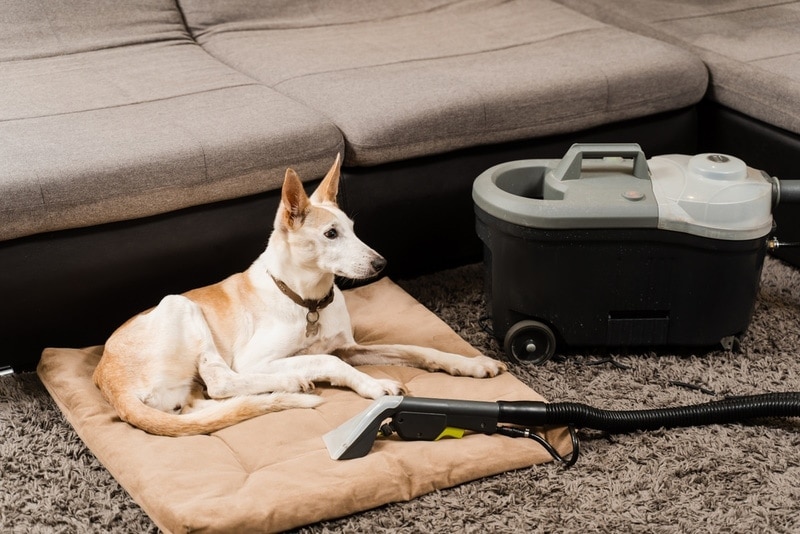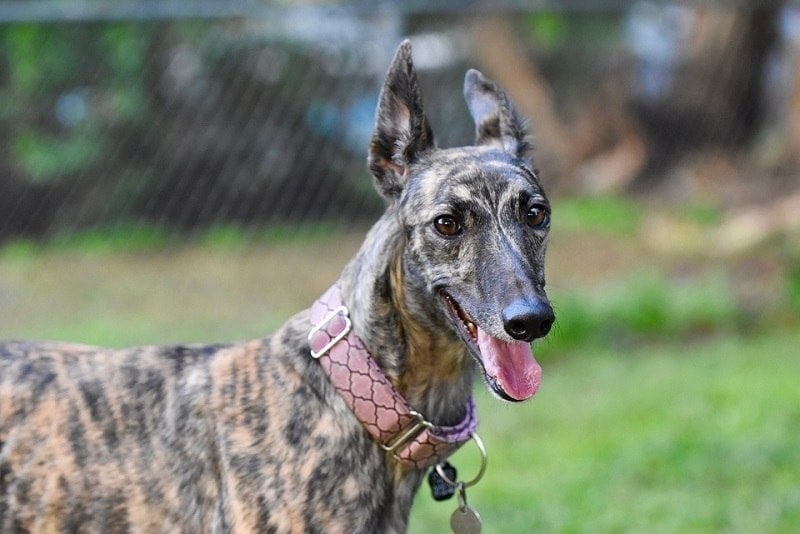Can Dogs Eat Kale? Vet Approved Facts & FAQ

Updated on

Kale is a nutrient-rich leafy green vegetable that has become increasingly popular in recent years. While it can be a great addition to many human diets, some pet owners may wonder if kale is safe for their furry friends to consume. Kale is generally safe for dogs to eat, but as with anything not found in their natural diet, there are risks involved. Continue reading to learn more.
Is Kale Safe for Dogs?
Though canine nutrition doesn’t typically include greens like kale, it is generally considered safe for dogs to eat in moderation. Kale is rich in vitamins and minerals that may provide health benefits, including antioxidants that can help fight cancer. However, like most foods, there are potential risks associated with feeding kale to dogs.
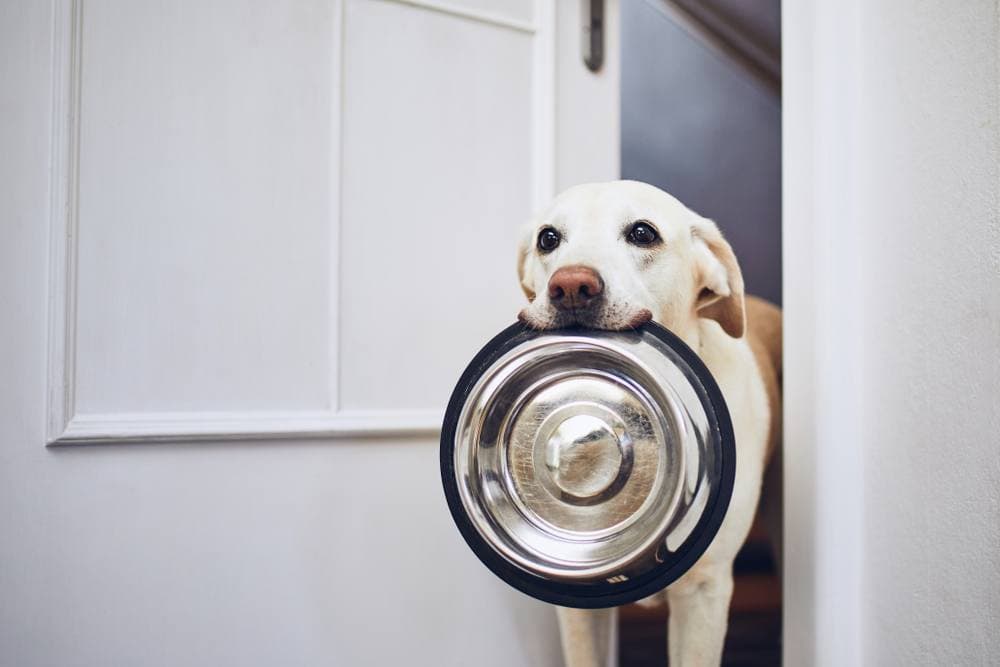
Is Kale Safe for All Dogs?
Kale can be generally safe for all dogs, as long as it is given in moderation. However, some dogs may experience digestive issues if they consume too much. It is best to consult with your veterinarian before adding any new food into your dog’s diet.
Nutritional Benefits of Kale
Kale contains a variety of nutrients that are important for both humans and dogs. It is a good source of fiber, vitamin A, vitamin C, vitamin K, magnesium, and potassium. The antioxidants in kale may help reduce inflammation and protect against some cancers. Additionally, it contains beta-carotene which can help improve your dog’s vision and overall health.
Risks of Feeding Kale to Dogs
Though kale is generally safe for dogs to eat in moderation, there are some potential risks associated with feeding it. Kale is a member of the cruciferous vegetable family, which can create gas and lead to an increase in flatulence when consumed by dogs. Additionally, the high fiber content could lead to digestive issues, such as bloating or diarrhea.
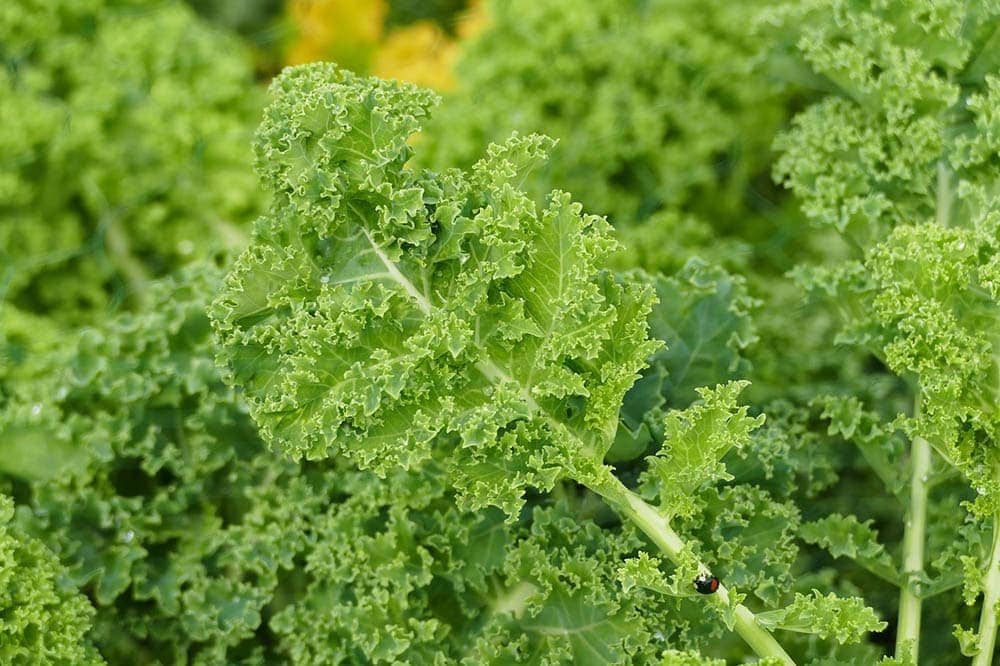
How Much Kale Can Dogs Eat?
Medium-sized dogs should not consume more than 1 cup of lightly steamed kale per day. It is also best to consult with your veterinarian before adding any new food to your dog’s diet. Like with other vegetables offered to your dog, rotation and variability are highly recommended.
Can I Feed My Dog Raw Kale?
Yes, it is safe to feed your dog raw kale in moderation as long as you wash the kale first to remove any bacteria from it. However, it may be easier for them to digest if the leaves are slightly seemed or pureed before feeding. Additionally, it is best to consult with your veterinarian before adding any new food to your dog’s diet.
Ways to Incorporate Kale into Your Dog’s Diet
If you decide to feed your dog kale, it is important to do so in moderation. You can start by adding small amounts of lightly steamed and chopped kale leaves to their food. To make sure this new food doesn’t cause digestive issues, introduce it slowly and observe how they react over several days. Additionally, you can offer occasional treats of kale chips without seasonings or add kale to your homemade dog food recipes.
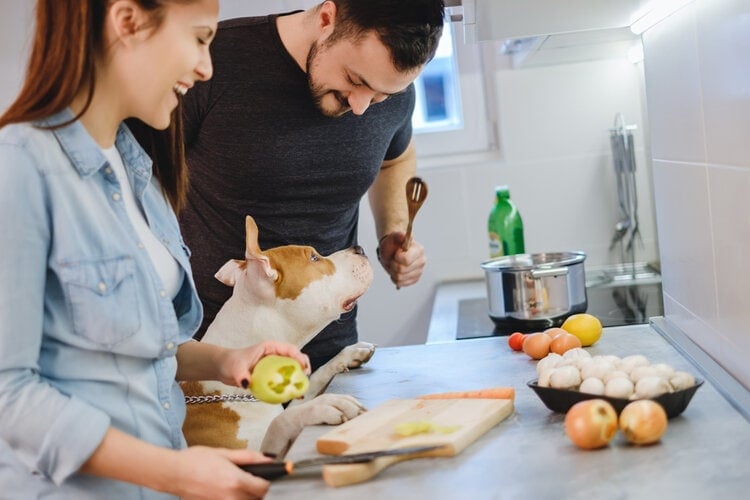
Are There Any Dog Food Brands That Include Kale?
Yes, there are a variety of commercial dog food brands that include kale as an ingredient. It is important to always read the label and make sure that you choose a high-quality product from a reputable brand. Additionally, if your dog has any sensitivities to dog food containing kale, and you know the kale is what is causing the issue, you may wish to ask your veterinarian for recommendations about alternative dog foods for your dog that don’t contain kale. If you wish to add more kale to your dog’s diet, also ask your vet for recommendations about foods containing kale.
Are There Any Alternatives to Kale for Dogs?
Yes, some other leafy greens you can try are spinach, romaine lettuce, and Swiss chard. Additionally, adding fruits and vegetables like carrots, apples, and green beans can be a great way to add variety into your dog’s diet.
However, it is important to remember that treats should only make up 10% of your dog’s daily caloric intake and that you should always consult with your veterinarian before adding any new food into your dog’s diet.
FAQs About Adding Kale into Your Dog’s Diet
Q: Can puppies eat kale?
A: Puppies can consume small amounts of kale as long as it is cooked and not raw. However, it is best to consult with your veterinarian before adding any new food into their diet.
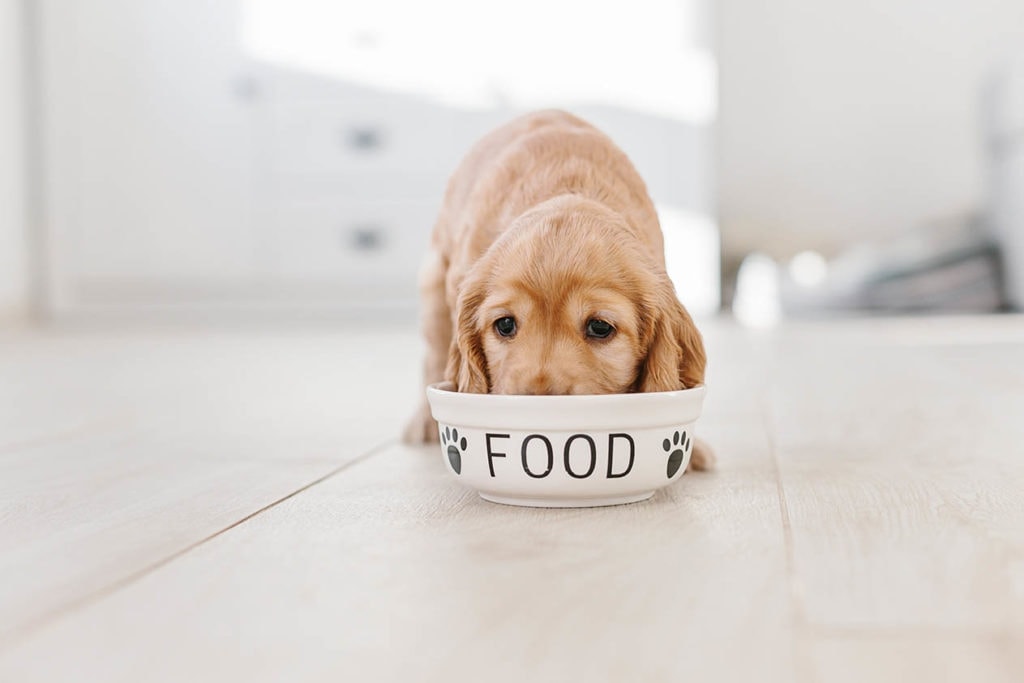
Q: Is kale a good snack for dogs?
A: Kale can be a healthy snack for dogs, as long as it is given in moderation. You can offer small pieces of cooked or raw kale leaves or try out pre-packaged treats like kale chips. Just make sure they are low in sodium and do not contain any seasonings, such as garlic or onions, which are toxic to dogs.
Q: What should I do if my dog eats too much kale?
A: If your dog has eaten too much kale, it is important to monitor them for signs of discomfort such as bloating, diarrhea, or vomiting. If they appear to be in any distress, contact your veterinarian immediately.
Q: Is there any special way to prepare kale before feeding it to my dog?
A: It is best to slightly steam the kale before feeding it to your dog, as this will make it easier for them to digest. Additionally, you can try adding olive oil or other healthy fats to help improve its palatability.
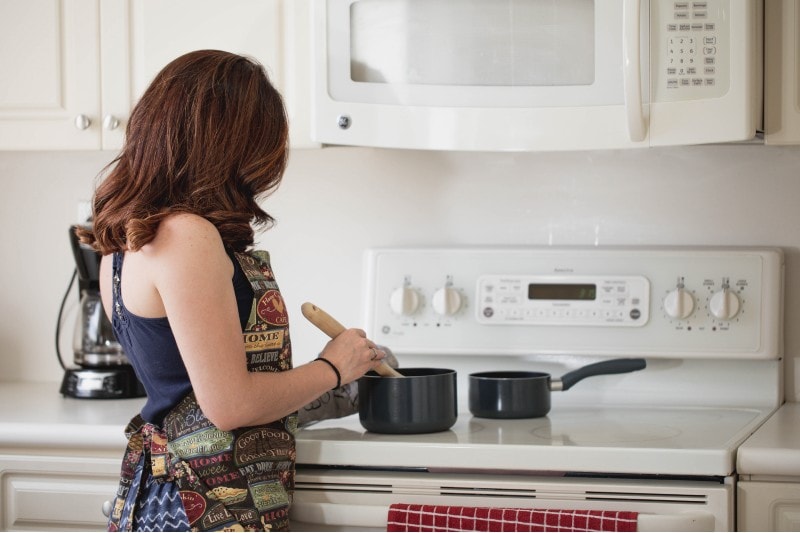
Q: Is kale good for my dog’s vision?
A: Yes, kale is a good source of nutrients such as Vitamin A, carotenoids, and lutein which are essential for maintaining your dog’s vision. Additionally, it contains antioxidants that can help protect against eye diseases.
Q: Is kale safe for small dogs?
A: Yes, kale can be generally safe for all dogs, as long as it is given in moderation. However, it is best to consult with your veterinarian before adding any new food into your dog’s diet.
Q: Is kale safe for senior dogs?
A: Yes, kale can be generally safe for all dogs, as long as it is given in moderation. However, some senior dogs may experience digestive issues if they consume too much. Additionally, due to their sensitive digestive systems, it is important to opt for steamed and pureed kale when feeding to senior dogs.
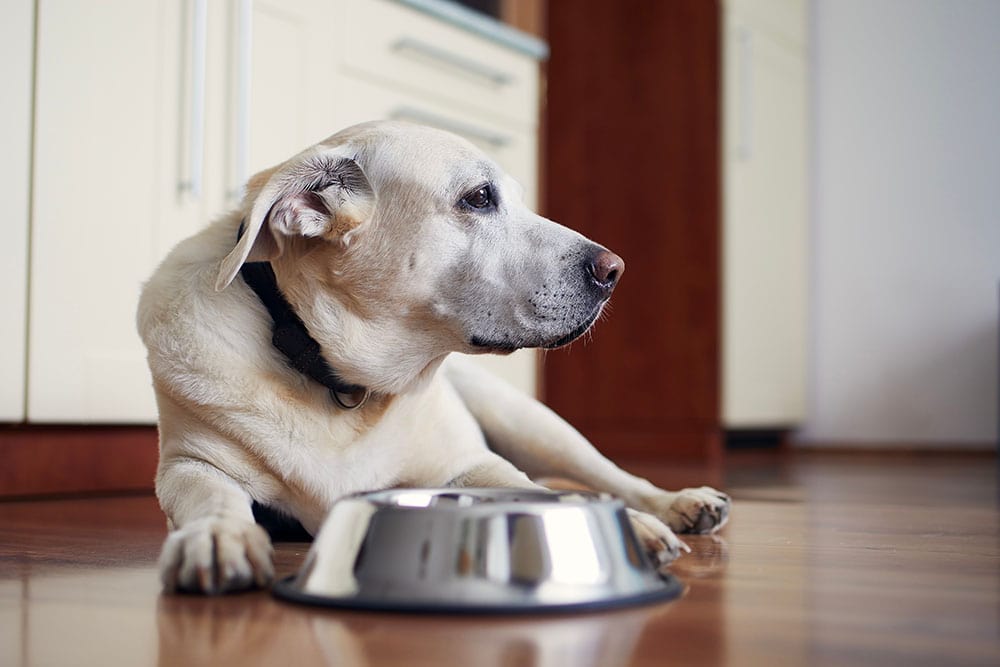
Q: Is kale good for dogs with allergies?
A: Yes, kale can be a good alternative for dogs that suffer from food allergies. Kale is low in fat and does not contain any common allergens. Additionally, it is a good source of essential nutrients such as Vitamin A, Vitamin C, and magnesium. It is also a source of quercetin, a natural anti-inflammatory and antioxidant commonly referred to as “the Benadryl of nature.”
Q: Is kale a good source of fiber for my dog?
A: Yes, kale is an excellent source of dietary fiber which can help promote a healthy digestive system. Additionally, fiber helps keep your dog feeling fuller longer, which can help prevent overeating.
Q: Is there a limit to how much kale I can feed my dog?
A: Yes, it is important to only feed your dog small quantities of kale as part of a balanced diet. As a general rule, no more than 10% of your dog’s total daily caloric intake should come from treats and human food.
Conclusion
In conclusion, kale is generally safe for dogs to eat in moderation. It is rich in important vitamins and minerals that may provide health benefits such as improved vision and protection from cancer. However, it is important to be aware of the potential risks associated with feeding kale to dogs including digestive issues and gas bloating. Therefore, it is best to consult a veterinarian before adding kale to your dog’s diet and consider other nutrient sources if needed.
Featured Image Credit: Katharina N., Pixabay




